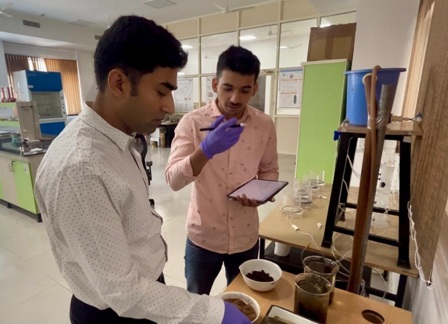
A research team of the Indian Institute of Technology (IIT) Mandi has found cancer-causing pollutants in ground water of Baddi –Barotiwala (BB) industrial area of Himachal.
A study undertaken by Dr. Deepak Swami, Associate Professor in School of Civil & Environmental Engineering of IIT Mandi and his research associate Utsav Rajput, in collaboration with Dr. Nitin Joshi, from the Department of Civil Engineering of IIT Jammu; have published the findings of the research in a Journal of Science of Total Environment.
On the basis of chemical hydrology of groundwater in the area, identifying dominant ion sources and measuring the geospatial variation of toxic metal concentrations, the research team revealed significant health risks posed by contaminated groundwater, due to geogenic uranium and industrial pollutants such as zinc, lead, cobalt, nickel, and chromium.
Telling about the findings, Dr. Deepak Swami said,” Ground water of the area poses high health risks and monitoring industrial effluents containing zinc, lead, nickel and chromium is important to prevent health problems; besides taking strict measures to check pollutants and treatment of effluents to reduce the risks.”
“Our team by determining potential contamination sources, have evaluated non-carcinogenic and carcinogenic health risks from drinking contaminated water using the United States Environmental Protection Agency (USEPA) human health risk assessment model for both adults and children and have identified key concerns and prepared geospatial maps showing metal contamination and health risks across village boundaries”, he added.
Elaborating on the research, Dr Joshi said, “Our team conducted a field study to map the pollution status in the BB industrial area to analyze chemical composition of the water used by local people and found it rock-dominated, mainly of the calcium carbonate type with uniform uranium levels which is heavily polluted with metals.”
“The team on the basis of health risk assessment revealed high non-carcinogenic risks for both adults and children, primarily due to natural uranium, with additional risks from pollution by zinc, lead, cobalt and barium. Carcinogenic risks were high for adults, mainly from industrial nickel and chromium,” tell the researchers.

